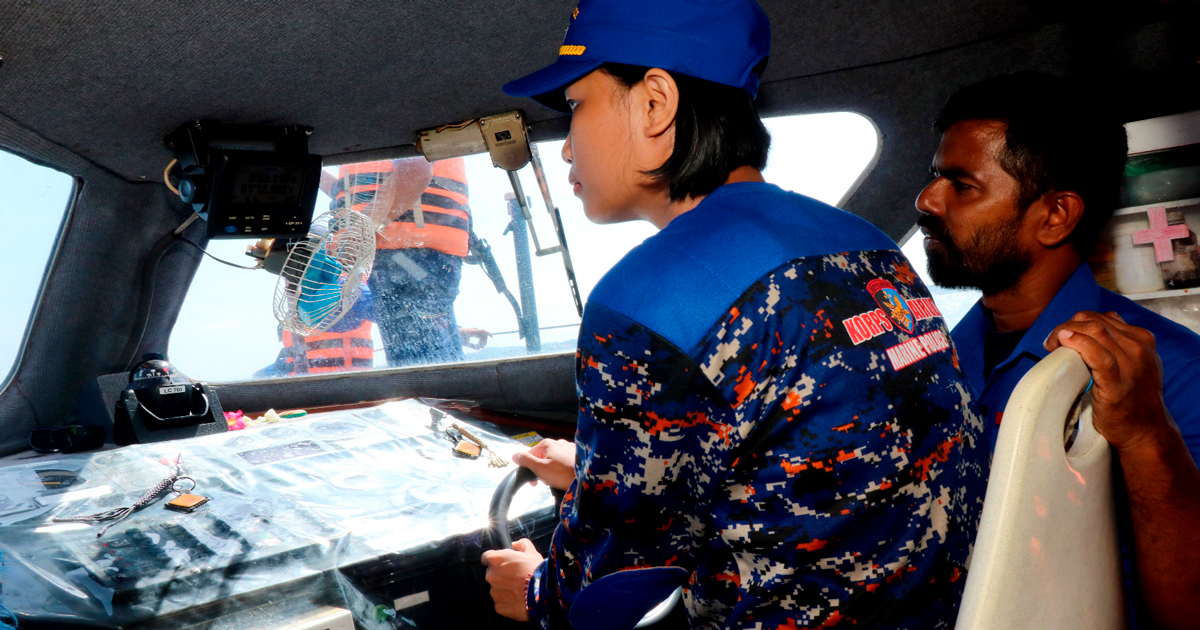
Sri Lanka, 25 August 2023 - In a historically male-dominated field such as maritime law enforcement, female officers face various difficulties in their mundane operations that eventually also transpire to limitations on their career prospects. These challenges include not only physical job requirements, but also access to training and skill development necessary for a career promotion.
As the United Nations moves steadfastly forward with the implementation of the Sustainable Development Goal 5: Gender Equality, the United Nations Office on Drugs and Crime (UNODC) also places gender-based policy at the core of its operations and works to help pioneer new capacity-building initiatives focused on empowering women and promoting women’s full and equal participation in the workplace.
In this regard, through its Global Maritime Crime Programme (GMCP), and in cooperation with the Sri Lanka Navy, UNODC recently provided, for the first time ever, an Inshore Patrol Craft (IPC) navigation training for female officers from Southeast Asia to further strengthen women’s role in maritime law enforcement.
The training provided female officers with comprehensive practical and theoretical knowledge of navigation of IPC vessels used by maritime law enforcement agencies to patrol territorial waters. Participants also learned about seamanship, engineering, electricity, combat medicine, firefighting, and communication.
Besides training in the simulator room, participants also got to practice navigating a real IPC vessel at sea. These boat navigation skills will allow female officers to navigate small boats and progress to commanding a vessel in the future, thus breaking barriers and deep-rooted gender roles in the maritime law enforcement sector.
The training is considered a momentous step forward as the duty of commanding an Inshore Patrol Craft vessels has mostly been performed by men, and navigation training is generally not offered to female officers. The IPC navigation training is therefore paving the way to new career opportunities for female officers who are willing to serve on duty at sea.
“Women still face discrimination and bias in career advancement and training opportunities in male-dominated fields, such as in vessel navigation training courses” says Nur Zahidah binti Zainuddin, Sub-lieutenant at the Malaysian Maritime Enforcement Command. She also expressed her hope that “Completing this course can increase job opportunities for female officers, lead to higher job satisfaction and a better work performance.”
First Lieutenant Mayank Ada Madaun from the Indonesian Marine Police shares the same view and further points out the added impact of inter-agency knowledge sharing: “As a policewoman who serves onboard marine police craft, I find the knowledge shared by Sri Lanka Navy very important as there are differences between marine knowledge of merchant vessel and the Navy’s knowledge of other vessels, such as military ships. Joining this training has improved my knowledge and I could apply it onboard my patrol vessel.”
The inclusion of women in more sea duties not only marks a breakthrough in gender roles and signals new career development for female officers, but it also contributes to a more inclusive approach that promotes gender equality and women’s participation in all sectors as drivers for development.
UNODC will continue to pioneer new initiatives and promote more opportunities for women in the service by offering similar capacity building to female personnel around the world, creating platforms where women’s voice can be heard, and working in tandem with governments for the empowerment of women as partners for development, peace and security.